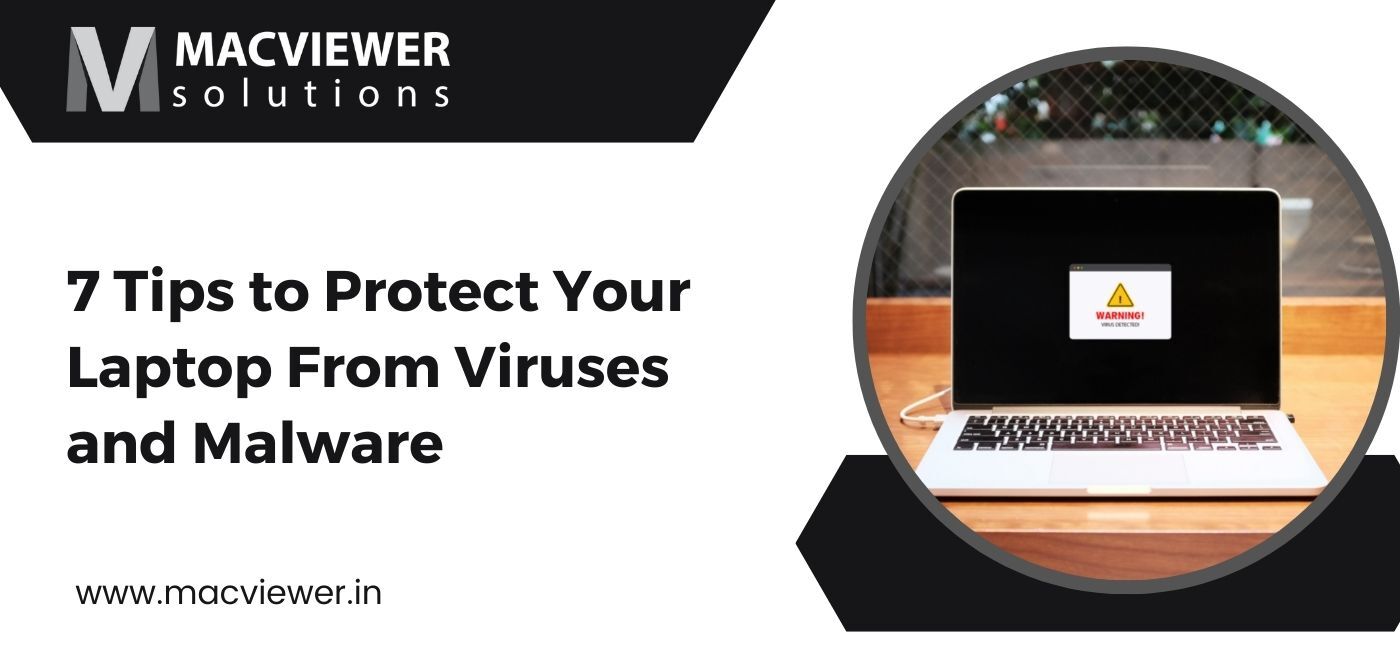Prevent Laptop Viruses and Malware with 7 Helpful Tips!

Your laptop is much like a human body. Just as we make sure to visit the doctor regularly, take our medicines on time and avoid activities that might make us fall sick, our laptop needs the same dedication for its optimum health! Laptop From Viruses and Malware are two of the biggest issues a laptop can come by, and could cause your laptop systems to crash, or data to be deleted. Here are 7 highly preventive and precautionary tips to make sure your laptop is protected from any sort of Virus that could be lurking around it
7 Useful Tips and Tricks for the Protection of Your Laptop From Viruses!

1. Are Your USBs Safe?
You borrow a USB from a friend to transfer a few files. Next thing you know, your laptop is terrorized by a virus! A common misconception is that malware only exists on the internet. This is not true, as the source of viruses could come from anywhere. Avoid plugging in unknown USB drives to your laptop, and also make sure you scan any USB drive you do plug in. Connecting or transferring files from any external device which has a virus is a huge risk for your laptop!
2. Think Before You Click
Suspicious email links and skeptical download sources are the breeding ground for all types of Viruses. Check and double-check before opening any links you get from unknown spam emails. Sometimes, a few websites can have a lot of tricks that may cause you to unknowingly download a virus. If you use outdated browsers like Internet Explorer, make sure the security settings are high as this will prevent any downloads which may occur in the background without you finding out. The 7th point in this blog will explain a few pointers on how to recognize phishing sites.
3. Antivirus Is the Way
Prevention is always better than cure! An antivirus program runs regular scans on your laptop and fights off any malware trying to sneak into your device. It doesn’t just check the internet, but also external sources for any lurking malware and warns us. You also don’t need to buy expensive antivirus software, a cheap or free alternative is as good, and will work efficiently.
4. Be Prepared in Advance
A precautionary tip would be to make sure you have a backup of all systems, files, and apps on your laptop ready. If your system gets corrupted by viruses, you could permanently lose all your data, and having a backup would be useful in this situation. There could be 3 places you can back up your data:
- Online Storage
- External Drives
- Cloud Storage like Google Drive
5. Regular Updates Are Necessary
Technology is constantly evolving, which means that security systems are also improving continuously. You need to ensure that your laptop has all its latest updates for the best security available. However, these updates can be time-consuming and even complex at times. Macviewer’s range of services also offers Annual Maintenance Contracts, which remind you and constantly make sure that your laptop is up-to-date!
6. Ad-Block Is Your Friend
Viruses on our laptops can catch us off-guard, just like pop-up advertisements! Many times, these ads can suddenly appear on our screen, right when we are going to click something else, and we click on the ad by mistake. These ads could be malicious and end up corrupting your laptop. Installing an ad-blocking software will not allow the website to display pop-up ads. But, make sure the ad-blocking software you install is a safe one. You can use licensed software or check the reviews online to make sure what you’re installing isn’t a virus in disguise!
7. How to Recognize a Phishing Website
A phishing website is almost similar to an already existing site, only it’s made to scam users who want to visit the original scam. Sometimes these fake websites look so similar to the original ones, that they can fool even the most experienced people. Listed below are a few ways through which you can pick out phishing sites and tell the difference between real and fake.
- Remember the pop-up notification which says that your site might not be secure? This is your browser trying to warn you that there is something wrong with the site you are on.
- Make sure the URL has https:// as a prefix. Phishing sites could have a letter or character missing from the prefix.
- Look for official sites. Search for Google verified sites to companies or sites you want to visit.
- Some specific sites you may be looking for may end in .org/.in. If these sites end in .com, they could be phishing sites.
- The biggest giveaway is if the website is acting suspiciously. The design, layout, and content of the site could be wrong, or there could be pop-up windows.
Conclusion
Keeping a laptop safe and secure is a tedious yet extremely important task for anyone. Having a secure password, and a firewall system are also a few other methods you can protect your device from malware. Even if your laptop is attacked by viruses, you don’t need to worry. Laptop repair services can get rid of the virus efficiently. If you are around Pune/PCMC area, Macviewers professional repair center will make sure your laptop is healthy and virus-free!
Vilas June 9, 2022 Laptop tips & tricks, Laptop repair
